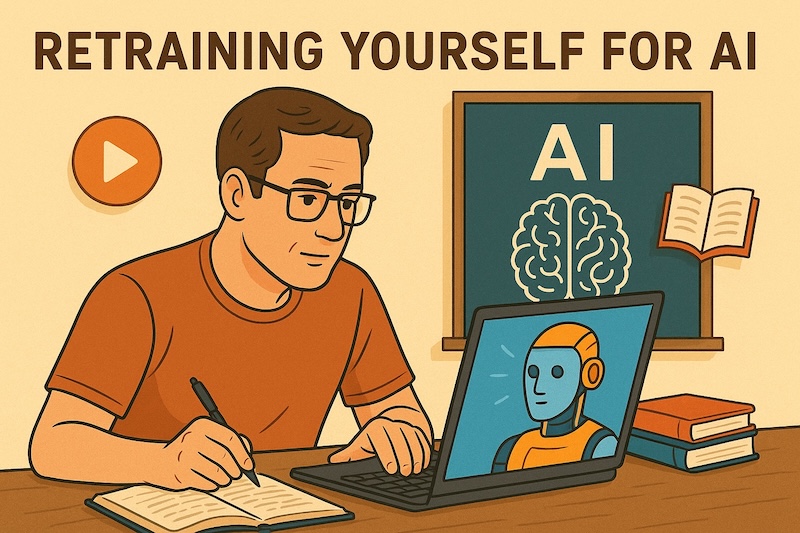The other week, I published a Substack post on the fastest-growing job skills for the future, highlighting insights from the World Economic Forum. At the very top of that list? AI and big data. Even then, it was clear that AI literacy was becoming a must-have. But things have escalated quickly. Accenture, a global leader in digital transformation, made headlines for urging staff to rapidly retrain in AI, while announcing plans to cut thousands of roles that could not be transitioned to meet new skill demands. It’s no longer enough to understand that AI is important. The message is now becoming clear: reskilling for AI is not optional. It’s required.
If you’re waiting on your company to train you in AI, you may already be behind.
Accenture, one of the largest consulting firms in the world, just made it crystal clear. In recent weeks, their leadership shared a blunt new reality:
“We are exiting staff who cannot be retrained for the age of AI.”
(Financial Times)“Accenture Tells Staff: Learn AI or get out.”
(FN London)
Let that sink in. This isn’t just about upskilling anymore. It’s about staying employed.
Accenture has already laid off 11,000 people, citing that those roles can’t be reskilled fast enough for their AI-forward future. They aren’t alone. Other companies are pushing hard for AI adoption—and employees who can keep pace.
The truth: most organizations are not equipped to retrain you fast enough.
Yes, many will roll out webinars or “AI strategy” decks. But those efforts often fall short:
- They’re too generic or not tailored to your role
- They focus on tools, not habits
- They don’t evolve fast enough as AI changes week to week
- Or they’re just optional and underutilized or aren’t designed for how people learn and develop skills.
Meanwhile, the World Economic Forum lists “AI and big data” as the #1 fastest-growing skill through 2030, with nearly 40% of core job skills projected to change in that time.
(WEF report + skills snapshot)
That’s why you must lead your own retraining.
Here’s the simple reality: if you’re not actively experimenting, learning, and applying AI in your current role (or for the next one), you risk irrelevance.
And if you’re a leader or manager, the same is true. You need your own playbook for using AI—not just watching your team try to figure it out.

A few ways to start:
- Pick one task you do every week. Ask: How might AI make this easier, faster, or better?
- Try ChatGPT, CoPilot, Claude, or Perplexity to improve a process you already own. Don’t wait for a course.
- Follow real prompts others are using in your role (LinkedIn and YouTube are goldmines)
- Start a shared doc with your team: “Here’s how I’m using AI this week” — make it a norm
Learning to use AI is no longer optional. It’s the new literacy.
Final thought:
Even if your employer never trains you, you can train yourself. And that mindset—learning how to learn—is the most important skill of all.
Stay curious, keep experimenting, and don’t wait to be told. I went all in on re-training myself when I saw what ChatGPT could do in late 2022. I know the best way to learn a skill is to teach it. This was my first YouTube video on using ChatGPT from 2022. AI now helps me with most of my work. This post was co-developed with ChatGPT and is many times better than what I could do on my own.